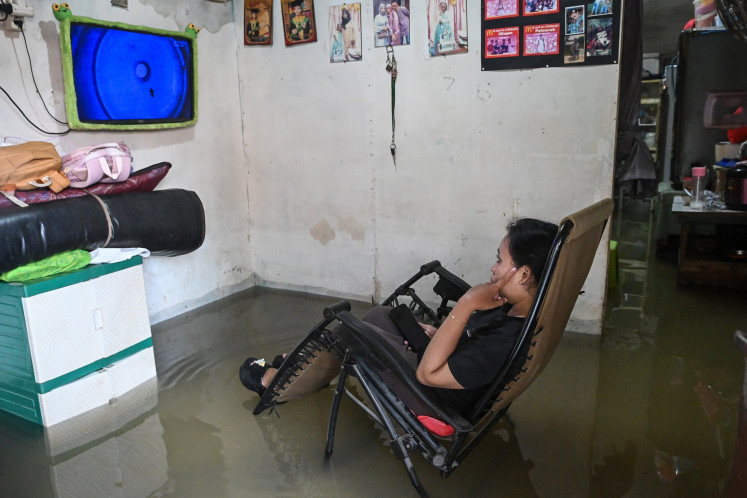Popular Reads
Top Results
Can't find what you're looking for?
View all search resultsPopular Reads
Top Results
Can't find what you're looking for?
View all search results[INSIGHT] Fintech can drive strong post-COVID-19 recovery in Asia
Yet, every crisis presents opportunities. One is the rapid advance in digital technology, which offers a way to recoup some of these gains and spur a strong economic revival once the pandemic has passed.
Change text size
Gift Premium Articles
to Anyone
T
o say 2020 has been a challenging year is a massive understatement. The COVID-19 pandemic has quickly undermined development gains from recent decades and slowed growth in many Asian economies.
Yet, every crisis presents opportunities. One is the rapid advance in digital technology, which offers a way to recoup some of these gains and spur a strong economic revival once the pandemic has passed.
As we all know, the pandemic has accelerated the use of digital technology. Many of us have become adept at online video conferencing and other digital tools while working from home. Pervasive restrictions on mobility and lockdowns have driven companies to shift their businesses and services online. The use of digital technology and e-commerce has become the business norm.
Digital payment platforms have eased a transition from offline to online transactions—and their use has skyrocketed in many parts of the region. In the Philippines, for example, the leading mobile wallet company GCash saw a 700 percent year-to-year increase in transaction volume in June alone, and doubled its registered users in the first half of 2020.
New business models have proliferated with the rise of digital platforms. In 2019, digital platform revenues reached US$3.8 trillion globally, equivalent to 4.4 percent of global gross domestic product. Asia accounted for just under half of that, while the United States generated 22 percent, and the euro area 11 percent. The use of digital financial services also increased consistently, with the rise in the use of digital platforms.
If promoted wisely, fintech solutions can help secure a sustainable and inclusive recovery from the pandemic. Fintech applications through smartphone-enabled saving, crowd-funding, and security tokens can greatly enhance the efficiency of resource allocation and reduce transaction costs. They can also encourage efficient delivery of social goods and services.
For that to happen, we need to work together to close digital divides that deprive socially marginalized and vulnerable groups, including the poor, women, elderly and rural communities, of the connectivity they need to join the digital economy and leverage fintech to promote inclusive growth. Recently, the Asian Development Bank (ADB) approved a $500 million loan in Indonesia to promote fintech-led financial inclusion for micro and small enterprises and marginalized groups.


















